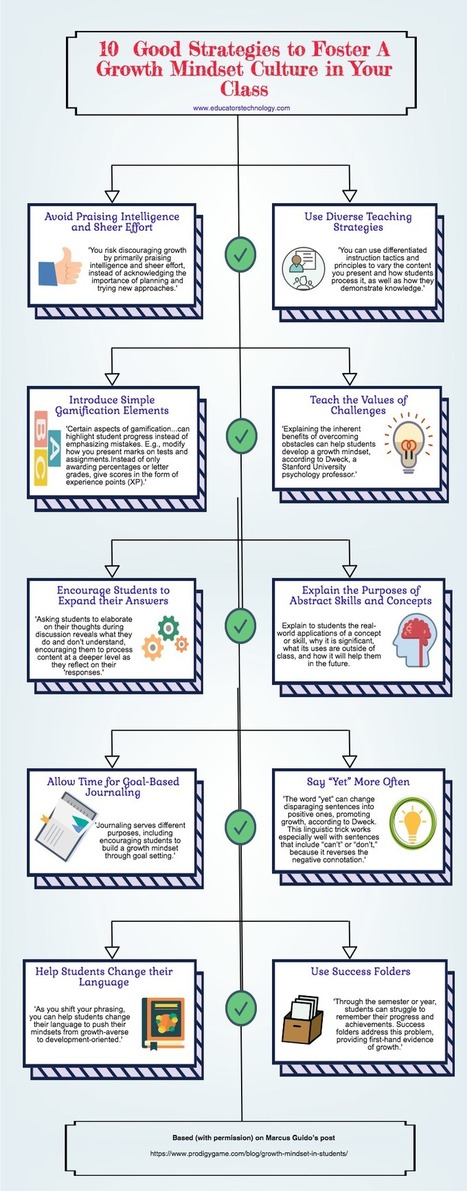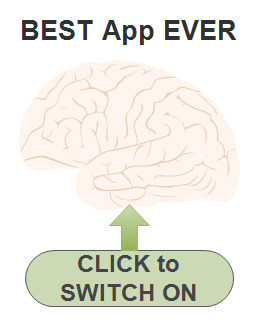In Carol Dweck’s famous study on growth mindset, Dweck taught high school students about brain plasticity and about how the characteristics of intelligence are not fixed. The idea was to convince students that they had control over improving their academic ability. Years later, these students scored higher on standardized tests.
It’s tempting to think of the Dweck study as a near instant fix. You teach students, or yourself, the details of growth mindset. This takes about an hour. And then afterward your performance magically improves.
Although Dweck’s study has been supported by future studies, for example this one, I suspect there is a crucial missing element to the story. What behaviors did the students change after the lesson? Knowing this is the key to understanding how you can improve your own life.
Learn more / En savoir plus / Mehr erfahren:
http://www.scoop.it/t/21st-century-learning-and-teaching/?&tag=carol+dweck
http://www.scoop.it/t/21st-century-learning-and-teaching/?&tag=Growth+Mindset



 Your new post is loading...
Your new post is loading...















Creating a growth mindset in your students is important but as teacher we sometimes forget that we need to also develop our growth mindset and always look for positive change